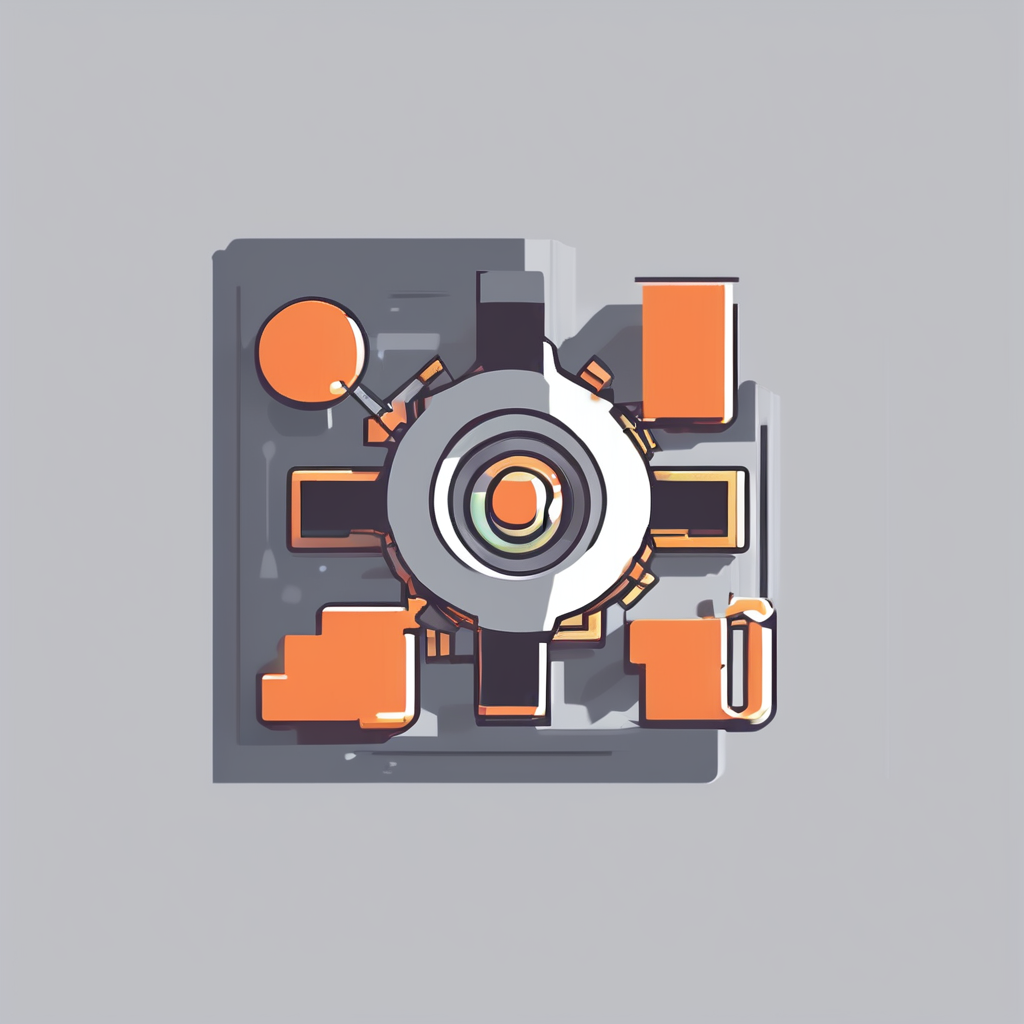Overview of Emerging Computing Trends Enhancing UK Industrial Efficiency
Emerging computing trends such as artificial intelligence (AI), cloud computing, and the Internet of Things (IoT) are significantly reshaping UK industries by driving operational efficiency. AI enables automation and predictive analytics, streamlining workflows and reducing human error. Cloud computing offers scalability and cost-effective data management, allowing industries to adapt quickly to market changes and reduce expenses. Meanwhile, IoT technologies provide real-time data through connected sensors, facilitating proactive asset tracking and maintenance.
The current state of digital transformation across UK industrial sectors reflects varying degrees of adoption but consistently highlights improvements in productivity and resource management. Manufacturing embraces AI for quality control, logistics leverages cloud platforms for seamless collaboration, and energy firms deploy IoT devices for performance monitoring. These technologies collectively bolster operational efficiency by minimizing downtime, optimizing supply chains, and enabling data-driven decision-making.
Also to discover : What Innovations Are Emerging in UK Computing Right Now?
Understanding the significance and practical impact of these emerging computing trends is essential for UK industries aiming to maintain competitiveness and enhance overall efficiency in an increasingly digital landscape.
Artificial Intelligence (AI) Applications Transforming UK Industry Operations
Artificial intelligence (AI) drives significant efficiency gains in UK industries by enhancing automation and predictive analytics. AI models analyze vast datasets to predict equipment failure, enabling proactive maintenance that minimizes downtime. In manufacturing, machine learning improves quality control by identifying defects faster than manual inspections, raising product standards while reducing waste. Logistics sectors employ AI to optimize routing and inventory management, improving delivery times and lowering costs. AI’s capability to automate repetitive tasks streamlines workflows, freeing human resources for higher-value activities. The energy industry utilizes AI algorithms to forecast demand fluctuations, optimizing supply and reducing energy waste. AI efficiency gains result from these smarter, data-driven processes that adapt dynamically to changing conditions. This transformative impact evidences AI’s role as a cornerstone of digital transformation within UK industrial operations, steadily increasing productivity and cost-effectiveness across diverse sectors.
Also to see : What Are the Upcoming UK Tech Policies Set to Influence Computing Trends?
Cloud Computing’s Role in Facilitating Agile and Cost-Effective Industrial Processes
Cloud computing provides UK industries with scalability and flexibility, essential for agile operations. By enabling dynamic allocation of computing resources, it allows businesses to handle fluctuating workloads efficiently without costly hardware investments. This adaptability accelerates response times to market changes, a vital advantage in today’s fast-paced industrial landscape.
Moreover, cloud platforms enhance collaboration by offering centralized data access. Teams across different locations can seamlessly share information, improving coordination and reducing delays. Cloud infrastructure also supports integration with AI and IoT technologies, amplifying their operational benefits.
In terms of cost savings, adopting cloud computing reduces expenses related to physical data centers, hardware maintenance, and software updates. Pay-as-you-go models ensure industries pay only for utilized resources, optimizing budget management.
UK manufacturers and logistics companies increasingly rely on cloud solutions to streamline supply chains and optimize production schedules. These practical examples underscore cloud computing’s pivotal role in modernizing industrial processes while delivering measurable operational efficiency.
Internet of Things (IoT) Enabling Real-Time Monitoring and Efficiency Gains
The Internet of Things (IoT) profoundly enhances operational efficiency in UK industries by enabling continuous, real-time monitoring through connected sensors. These IoT devices collect detailed data on asset status and environmental conditions, allowing industries to perform predictive maintenance before costly breakdowns occur. For instance, manufacturing plants employ IoT sensor networks to track machine health, reducing unexpected downtime and extending equipment lifespan.
Real-time monitoring accelerates decision-making, as managers receive up-to-date insights that help optimize resource use and workflow scheduling. This dynamic adaptability improves overall efficiency and reduces waste. Logistics companies leverage IoT for precise asset tracking, ensuring timely deliveries and minimizing route redundancies. The broad deployment of IoT technologies across UK industries bridges data gaps, integrates with AI and cloud platforms, and creates interconnected ecosystems that support smarter, data-driven operations. Thus, IoT’s role in operational efficiency is critical, delivering measurable performance improvements and cost savings across industrial sectors.
Overview of Emerging Computing Trends Enhancing UK Industrial Efficiency
Emerging computing trends including artificial intelligence (AI), cloud computing, and the Internet of Things (IoT) form the backbone of operational efficiency advancements in UK industries. These technologies collectively transform traditional processes by integrating automation, scalable infrastructure, and real-time data analytics.
AI enhances decision-making through predictive analytics and automation, cloud computing delivers scalable and cost-effective platforms for agile operations, and IoT provides continuous monitoring via interconnected sensors. Together, they enable industries to minimize downtime, optimize resource use, and accelerate workflow responsiveness.
Digital transformation in UK sectors such as manufacturing, logistics, and energy is uneven but trending strongly toward full integration of these technologies. For example, manufacturers employ AI-driven quality control alongside IoT-enabled asset tracking, all supported by cloud infrastructures to coordinate data access and operational agility. The technology impact is measurable through increased productivity and significant cost reductions.
Understanding these key emerging computing trends and their synergy is essential for UK industries wanting to stay competitive and continuously improve operational efficiency in today’s evolving industrial landscape.
Overview of Emerging Computing Trends Enhancing UK Industrial Efficiency
Emerging computing trends such as artificial intelligence (AI), cloud computing, and the Internet of Things (IoT) are pivotal in boosting operational efficiency across UK industries. AI leverages data-driven algorithms to automate processes and enable predictive maintenance, thereby reducing downtime and improving quality. Cloud computing provides the scalable infrastructure that supports agile operations while facilitating seamless data sharing among teams, cutting costs linked to in-house hardware. Meanwhile, IoT connects industrial assets via sensors, delivering real-time monitoring that supports rapid decision-making and resource optimisation.
Across UK industries—manufacturing, logistics, and energy—digital transformation is progressing at different speeds but consistently focuses on integrating these technologies to enhance productivity. The technology impact is evident: companies reduce waste, accelerate workflows, and lower expenses through smarter data use. The combination of AI, cloud, and IoT forms an interconnected ecosystem that enables UK industries to remain competitive while improving operational efficiency amid evolving market demands.
Overview of Emerging Computing Trends Enhancing UK Industrial Efficiency
Emerging computing trends notably include artificial intelligence (AI), cloud computing, and the Internet of Things (IoT). These technologies fundamentally alter how UK industries approach operational efficiency by enabling automation, scalability, and real-time data insights. AI uses advanced algorithms to predict maintenance needs and optimize workflows, reducing downtime and increasing output quality. Cloud computing offers scalable infrastructure that supports agile operations and cost-effective resource management, allowing businesses to quickly adjust to changing demands. Meanwhile, IoT connects sensors and devices, furnishing continuous data streams that facilitate proactive asset management and faster decision-making.
The technology impact on UK industries is profound, with sectors such as manufacturing, logistics, and energy integrating these trends to enhance productivity and reduce costs. Digital transformation varies across industries but consistently shows progress toward embedding these technologies into daily operations. This integration leads to improved resource utilisation, minimized waste, and accelerated operational responsiveness. As emerging computing trends evolve and mature, their combined effect drives UK industrial competitiveness by fostering smarter, data-driven processes aligned with contemporary market challenges.

